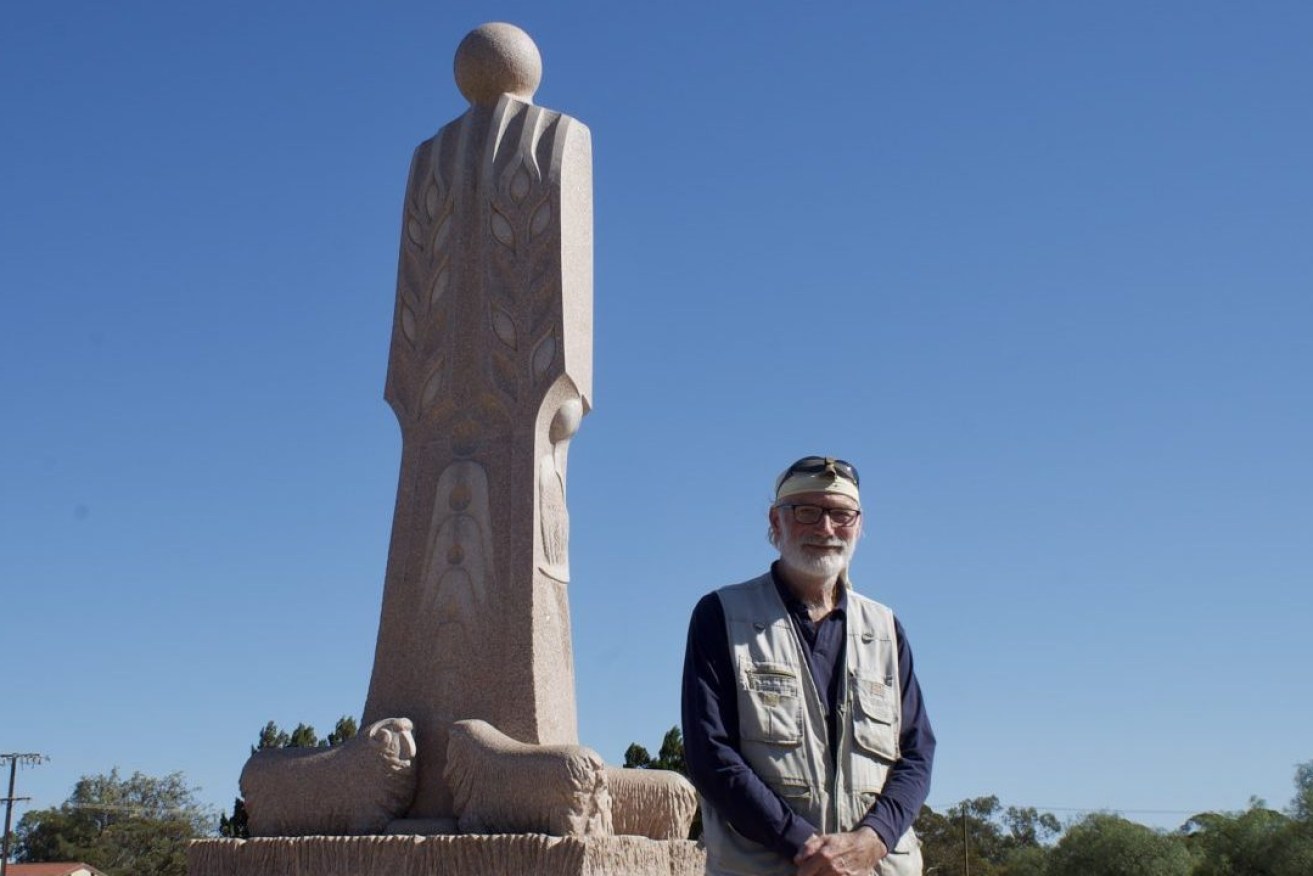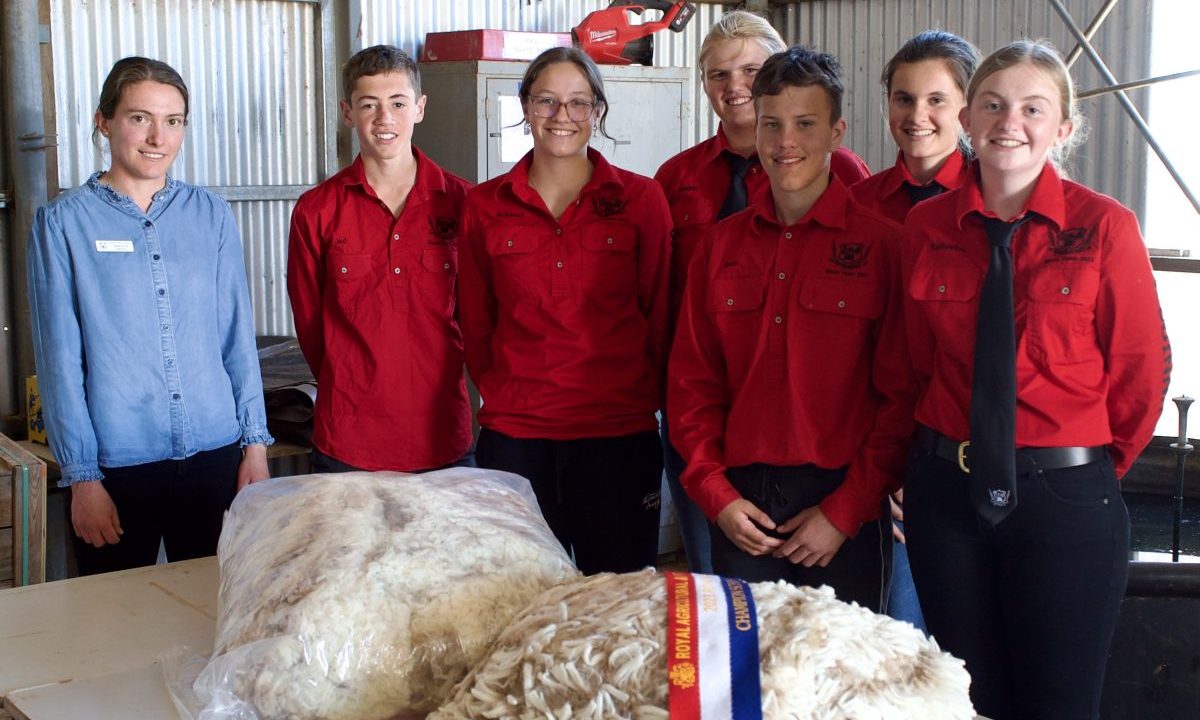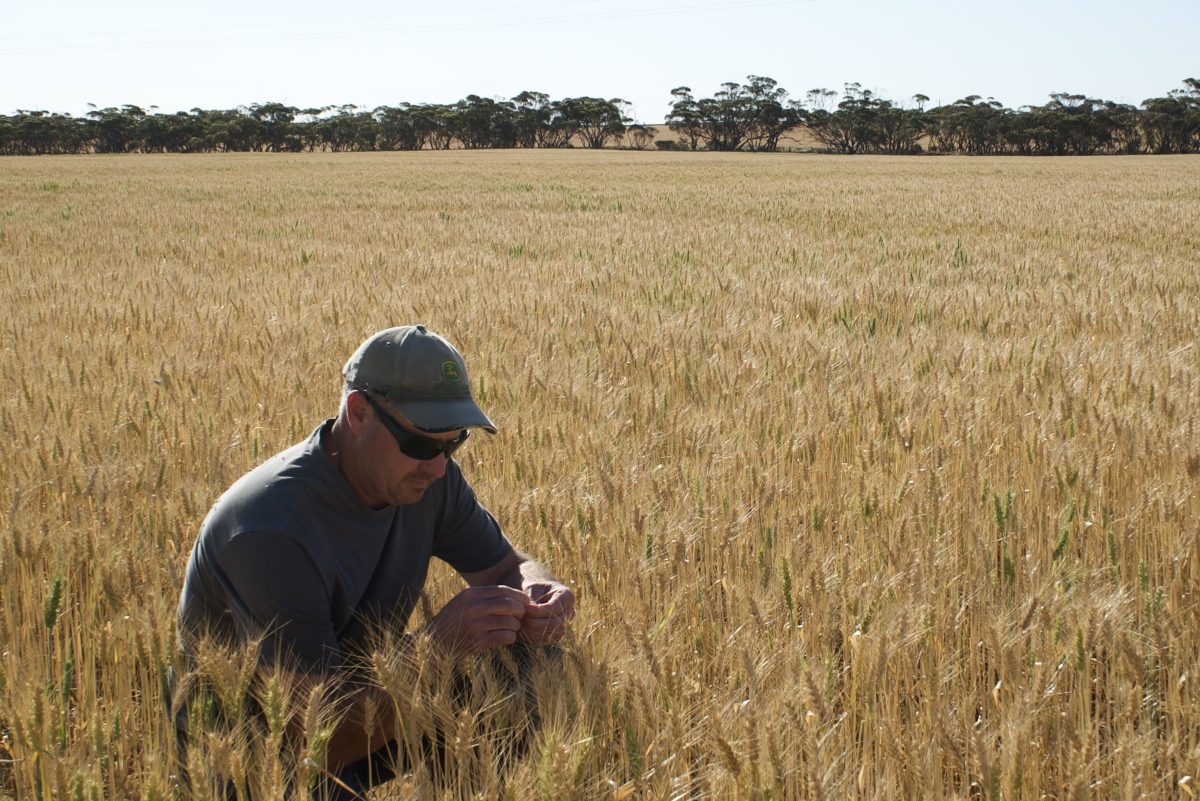Wudinna: united by granite and grain
Located in the heart of the Eyre Peninsula, Wudinna is a town where agriculture is not just a livelihood, it is the very heart and soul of the community. The townspeople show their unity and endurance as the winner of the 2023 Agricultural Town of the Year Award.

Marijan Bekic, sculptor of ‘The Australian Farmer’
Wudinna is uniquely characterised by a granite sculpture that greets all who pass through.
Aptly named ‘The Australian Farmer’, the monument embodies the very essence that binds this community together: agriculture.
With grain crops and sheep embellished into its design, the hand-carved sculpture symbolises the lifeblood of the region, being dryland farming.
Wudinna, the town whose name derives from the Aboriginal word for granite hill, is renowned for rich granite deposits.
It seems fitting that the sculpture itself is hewn from this resilient stone, but even more so in that it reflects the unwavering strength and endurance of its townspeople.
“Everything that’s done here is either done by raising money locally or through local people, and local volunteers keep it running,” says Mayor Eleanor Scholz, of the town with a population of just over 600.
“While farms are getting bigger and we can see support services growing… it’s the care that people have for each other that really matters here.”
This affection for their town is profound at the Wudinna Area School, a cornerstone of the community.
With around 200 students ranging from Reception to Year 12, the school places agriculture at the heart of its curriculum.
Each year level delves into different aspects of plant and animal production, nurturing the understanding necessary for future careers.

Wudinna Area School students along with Ag and Science teacher Genevieve Wright. All photos: Lara Pacillo
Principal Ned Loades emphasises the importance of keeping students at the forefront of agricultural advancements, which encourages them to stay in the town.
“We want kids involved in the cutting edge of agriculture to make sure that they have that knowledge going forward,” he says.
“Most of our kids come from farms, and if they don’t come from a farm, they are involved in providing a service to a farm. So, it’s a really important aspect – making sure that they actually have the skills for the future.”
Year 1/2 teacher Nicolle McKinlay moved to Wudinna four years ago for work; she never looked back, falling in love with the town’s charm and seeing it as the perfect place to raise her young family, enrolling her children in the school.
“I was just blown away with how welcoming and safe the town is,” Nicolle says.
At the school, a menagerie of animals, which provide students with hands-on learning experiences, are generously donated by local farmers. It underlines the community’s commitment to service, where acts of giving are seen as a privilege.

Farmhand at Westwud Chris Foster
Wudinna’s emergency services, including the CFS and ambulance, are completely run by volunteers and operate around the clock. Chris Foster, a lifelong resident and farmhand at Westwud, attests that around 80 per cent of local families volunteer is some form.
The town acts as a hub for the Eyre Peninsula region. It’s a centre for research innovation, being the headquarters of farmer-owned organisation AIR EP, which leads low rainfall research and development, as well as Eyre Peninsula Cooperative Bulk Handling (EPCBH), which supports grain storage, handling and supply chain logistics.
Naomi Scholz, executive officer of AIR EP and a Wudinna local, describes the pivotal role these institutions play, even more so in that the Eyre Peninsula contributes 40 to 45 per cent of South Australia’s wheat production.
Naomi shares Vision 2050, AIR EP’s forward-looking farming plan that spans the next three decades and addresses the challenges and opportunities that lie ahead for agriculture in the region.
Wudinna also serves as a hub for the surrounding towns through offering indispensable services to the agricultural sector and being a prominent destination for healthcare and retail needs.
Apex Park and numerous scenic walking trails attract visitors, and tourism is only growing with the town’s first-ever music festival Granite Rocks set to take place in 2024.
Perhaps the most enduring symbol of Wudinna’s unity is the very sculpture that defines it.
‘The Australian Farmer’ community-driven initiative took 17 years to come to fruition; after failing to attract government grants for the arts project, the townspeople instead rallied together to raise funds for the sculpture.
When Croatian-born Sydney-based sculptor Marijan Bekic and his son resided in Wudinna for two years to craft the masterpiece, the community was extremely hospitable.
Retired teacher Marlene Boylan opened her home to Bekic and his son to live, while local businesses, including the bakery, the hotel and the butcher, generously donated food.
Years after the project was completed in 2009, Marijan still works and lives in Wudinna, being a recipient of a $1 housing block from council, and earning admiration for the town and its people.
“The sculpture will last for thousands of years, in my opinion, this will be around long after the other houses are gone,” Marijan says.
“It’s a sign of witness to tell the future generations what kind of people lived here, how they lived and what they believed in.”
The AgTown of the Year award is presented at InDaily‘s Regional Showcase Awards.




